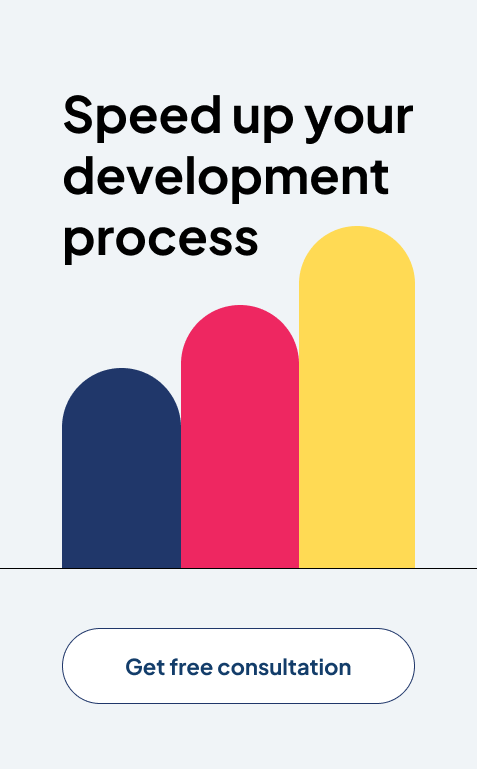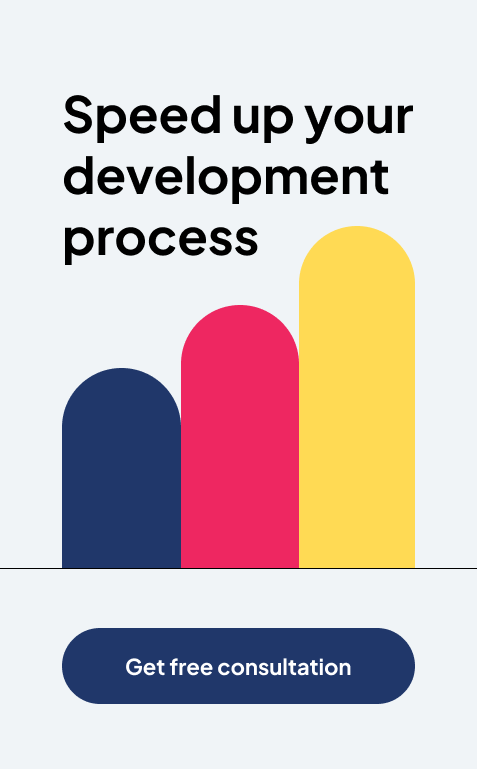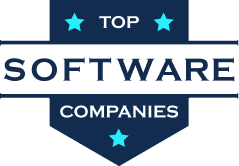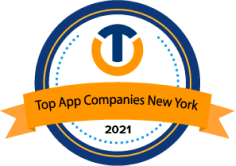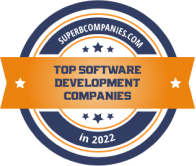Exploring the Power of PHP: Use Cases and Best Practices

Are you a developer seeking a powerful and versatile solution for your web development projects? Have you been pondering over the perfect language to breathe life into your innovative ideas and turn them into reality? Look no further, as we present to you the answer to your web development quest: PHP – a dynamic scripting language that has captured the hearts of millions of developers worldwide!
In a rapidly evolving digital landscape, choosing the right language for your projects is paramount. According to recent surveys, PHP continues to dominate the web development sphere, powering over 79% of websites with server-side scripting needs. Its impressive performance, ease of use, and vast community support have solidified its position as one of the most popular programming languages in the industry.
But why should you join the ever-growing legion of PHP enthusiasts? What sets PHP apart from the multitude of programming languages out there? How can you harness the true power of PHP to build exceptional web applications?
This comprehensive blog is here to answer all your questions and more. We’ll delve deep into the benefits of PHP and explore its diverse use cases that have propelled it to the forefront of web development. From building dynamic Content Management Systems to driving real-time applications and IoT solutions, PHP’s versatility knows no bounds.
But it doesn’t end there! Armed with a wealth of knowledge, we’ll equip you with the best practices to ensure PHP code excellence. Let’s dive in and discover the true power of PHP together!
Benefits of PHP: Empowering Web Development
Speed and Performance: PHP’s nature as a server-side scripting language allows it to handle tasks on the server before sending the final result to the client. Its execution speed and low overhead contribute to excellent performance, making it suitable for high-traffic websites and applications.
- Platform Independence: PHP is platform-independent, meaning it can run on various operating systems like Windows, macOS, Linux, and more. This feature enables developers to deploy PHP applications on a wide range of servers.
- Extensive Documentation and Community: PHP boasts a vast and active community of developers who continually contribute to its growth and enhancement. Extensive documentation, forums, and online resources ensure that developers can easily find solutions to their queries.
- Scalability: PHP allows developers to scale applications efficiently, adapting to increased traffic and evolving business needs. Its compatibility with various web servers and databases makes it a reliable choice for both small-scale and enterprise-level projects.
- Easy Integration: PHP integrates seamlessly with other technologies, such as HTML, CSS, JavaScript, and databases like MySQL, making it a preferred choice for web developers to create dynamic and interactive web pages.
- Open Source and Cost-Effective: PHP is an open-source language, meaning developers can access its source code freely. This aspect reduces development costs significantly, making it an attractive option for businesses and startups.
- Security: PHP has a range of built-in security features, and its strong community ensures that vulnerabilities are addressed promptly. Staying updated with the latest PHP version and adopting secure coding practices ensures robust application security.
- Frameworks and Libraries: PHP offers a wide array of frameworks like Laravel, Symfony, and CodeIgniter, and numerous libraries that expedite development tasks. These frameworks follow the MVC (Model-View-Controller) pattern, enhancing code organization and maintainability.
Harnessing PHP’s Versatility: The Use Cases
- Content Management Systems (CMS): PHP’s versatility makes it a perfect fit for developing Content Management Systems (CMS). CMS platforms like WordPress, Joomla, and Drupal rely heavily on PHP to handle dynamic content, user authentication, and database integration. PHP’s ability to interact with databases efficiently allows CMS developers to create, update, and manage content seamlessly. Furthermore, its server-side capabilities enable users to access and modify content via web browsers, making content management tasks convenient and user-friendly.
- E-commerce Websites: In the realm of e-commerce, PHP stands tall as a preferred language for building feature-rich online shopping platforms. The language’s integration capabilities with payment gateways, shopping carts, and databases (such as MySQL) facilitate secure and seamless transactions. PHP frameworks like Magento and WooCommerce streamline e-commerce development by offering pre-built modules for product catalog management, order processing, and customer management. The dynamic nature of PHP enables real-time inventory management and personalized shopping experiences, enhancing user engagement and retention.
- Social Media Platforms: Social networking sites and online community forums often rely on PHP to handle massive amounts of user interactions, data processing, and content management. PHP’s ability to handle real-time data processing and its efficient support for sessions and cookies make it an ideal choice for building interactive social media platforms. The language’s extensive libraries for image processing and multimedia handling also contribute to the rich media content often seen on social networking sites.
- Web Portals and Blogs: PHP’s simplicity and ease of use make it a staple for building web portals, blogs, and news websites. It offers a wide array of available themes and plugins that expedite website development and content publication. Popular blogging platforms like WordPress and Joomla are built on PHP, offering users an intuitive and customizable experience. PHP’s templating capabilities allow developers to create dynamic web pages that update automatically when new content is published.
- Enterprise Applications: PHP’s scalability and ability to handle complex business logic make it an excellent choice for developing enterprise-level applications. In the corporate environment, PHP can effectively manage data, user roles, and permissions, making it suitable for customer relationship management (CRM) systems, human resources portals, and inventory management software. Enterprise-grade PHP frameworks like Laravel and Symfony provide developers with the necessary tools to build robust and secure applications for businesses of all sizes.
- APIs (Application Programming Interfaces): PHP is widely used to create RESTful APIs that facilitate communication between different software applications. APIs are crucial for mobile app development, allowing mobile applications to interact with server-side functionalities. PHP’s ability to handle data requests and responses efficiently enables seamless data exchange between clients and servers. Many popular web services and social media platforms expose their APIs using PHP, enabling developers to integrate their applications with these platforms.
- Real-time Applications: PHP, when coupled with WebSocket or other real-time libraries, can power real-time chat applications, collaborative tools, and interactive gaming platforms. These applications require constant and instantaneous data exchange between clients and servers. PHP’s non-blocking I/O capabilities and real-time event handling make it suitable for developing responsive and interactive applications that deliver smooth user experiences.
- Data Analysis and Visualization: PHP’s integration capabilities with data analysis libraries like R and visualization tools like D3.js enable developers to build data-driven web applications and dashboards. Websites can present complex data in a visually appealing and interactive manner, enhancing user understanding and engagement. PHP’s server-side processing ensures efficient data retrieval and manipulation, making it a valuable asset for data-centric applications.
- IoT (Internet of Things): With the growing prevalence of the Internet of Things (IoT), PHP can be utilized in the backend to manage and process data from IoT devices. PHP’s ability to handle data streams and interact with databases enables seamless communication between IoT devices and the server. This enables developers to create IoT-based applications for home automation, industrial monitoring, and smart city solutions, among other IoT use cases.
PHP’s versatility allows it to excel in a wide range of use cases, making it a popular choice among web developers worldwide. Whether it’s powering dynamic CMS platforms, driving e-commerce websites, or supporting real-time applications, PHP’s adaptability, extensive libraries, and community support continue to cement its place as a leading server-side scripting language. As technology evolves, PHP will likely continue to thrive and maintain its relevance in the ever-changing landscape of web development.
Best Practices: Ensuring PHP Code Excellence
PHP’s popularity and flexibility have made it a widely used language for web development. To maintain code quality, security, and scalability, developers must adhere to best practices throughout the development process. Let’s explore some essential practices for ensuring PHP code excellence:
- Use the Latest PHP Version: Always use the most recent stable version of PHP for development. Each new release introduces performance improvements, bug fixes, and security enhancements. Upgrading to the latest version ensures that your code benefits from the latest features and remains protected against known vulnerabilities.

- Sanitize User Input: Prevent security vulnerabilities, such as SQL injection and cross-site scripting (XSS) attacks, by thoroughly validating and sanitizing user input before processing it. Use PHP’s built-in functions like filter_var() or custom validation methods to ensure that input data is safe for use in queries and displays.
- Adopt Object-Oriented Programming (OOP): Utilize Object-Oriented Programming principles to organize your code into reusable and maintainable objects. OOP promotes code modularity, making it easier to manage and extend functionality without affecting other parts of the codebase. Encapsulation, inheritance, and polymorphism are essential concepts to apply in OOP PHP.
- Use PHP Frameworks: Leverage PHP frameworks like Laravel, Symfony, or CodeIgniter to expedite development and adhere to coding standards. Frameworks follow established conventions and provide built-in features like routing, database ORM (Object-Relational Mapping), and form validation, saving valuable development time and reducing the risk of common errors.
- Optimize Database Interactions: Minimize the number of database queries by employing techniques like eager loading and caching. Properly indexing database tables and using query optimization tools can significantly enhance application performance. Utilize PHP’s database connection pooling to manage database connections efficiently.
- Implement Error Handling: Implement robust error handling mechanisms to catch and log errors and exceptions effectively. Avoid displaying sensitive information to end-users in error messages, as this could potentially lead to security breaches. Implement custom error handlers and log exceptions to facilitate debugging and maintain application integrity.
- Secure Password Handling: Store user passwords securely using strong hashing algorithms like bcrypt. Avoid using deprecated functions like MD5 or SHA-1, as they are susceptible to brute-force attacks. Additionally, consider implementing password policies that enforce strong passwords to enhance user account security.
- Performance Optimization: Use opcode caching extensions like OPcache or APC (Alternative PHP Cache) to cache compiled PHP code, reducing server load and speeding up script execution. Minimize HTTP requests by compressing assets like CSS, JavaScript, and images. Implement asynchronous processing through techniques like AJAX to improve application responsiveness.
- Code Documentation: Write clear and concise code comments to document your code thoroughly. Properly documented code facilitates team collaboration, making it easier for other developers to understand and maintain your code. Use meaningful variable and function names to enhance code readability.
- Validate and Sanitize Data on Output: Remember that user input should be validated and sanitized when received, but also ensure that output data is properly escaped before being rendered in HTML templates. This prevents cross-site scripting (XSS) attacks that could be launched using malicious scripts injected into the output.
- Use Prepared Statements: When dealing with databases, prefer using prepared statements or parameterized queries instead of direct query concatenation. Prepared statements prevent SQL injection attacks by separating data from the SQL code, keeping user input safe.
- Regular Code Reviews: Conduct regular code reviews with your development team to catch potential bugs, identify areas for improvement, and ensure that best practices are followed consistently. Code reviews foster collaboration and knowledge sharing among team members, ultimately leading to a higher quality codebase.
By following these best practices, PHP developers can ensure code excellence, maintainable applications, and robust security. Staying updated with the latest PHP advancements and industry trends is essential for delivering high-quality PHP projects that meet the needs of users and businesses alike. Remember that writing excellent code not only makes development more enjoyable but also contributes to the success and longevity of your PHP projects.
Conclusion
PHP continues to be a powerhouse in web development, offering speed, versatility, and ease of use. From building simple websites to complex enterprise applications, PHP has proven its worth across a wide array of use cases. By following best practices and staying updated with the latest PHP advancements, developers can harness the full potential of this dynamic scripting language, ensuring robust and efficient applications. As technology evolves, PHP’s community-driven approach and adaptability will undoubtedly keep it at the forefront of web development for years to come.
Want more information about our services?
Similar Posts

Offshore Software Development Trends For 2022 (One’s You Can’t Miss)
In 2022, we will see rapid digitization and virtualization of businesses and societies. The primary trends in the IT and software development industry will result from this COVID driven change. However, sustainability and data security will be at the forefront of this digital transformation. ...

Average Time to Build a Website from Scratch in 2023
Whatever the field, a company’s online presence has a big impact on how successful it is. Many businesses still seem to be neglecting the fact that the majority of their customers tend to visit their websites before making a purchase. A strong online presence, particularly a website, can be crucial for increasing revenue. If your […]...

Node.js Microservices: A Guide to Building Scalable Apps
Are you ready to unlock the secrets to building agile, scalable applications that cater to the dynamic needs of today’s users? As technology continues to advance, businesses are faced with the daunting task of meeting ever-growing demands while maintaining efficiency and reliability. In this era of constant innovation, microservices architecture has emerged as a game-changer, […]...
